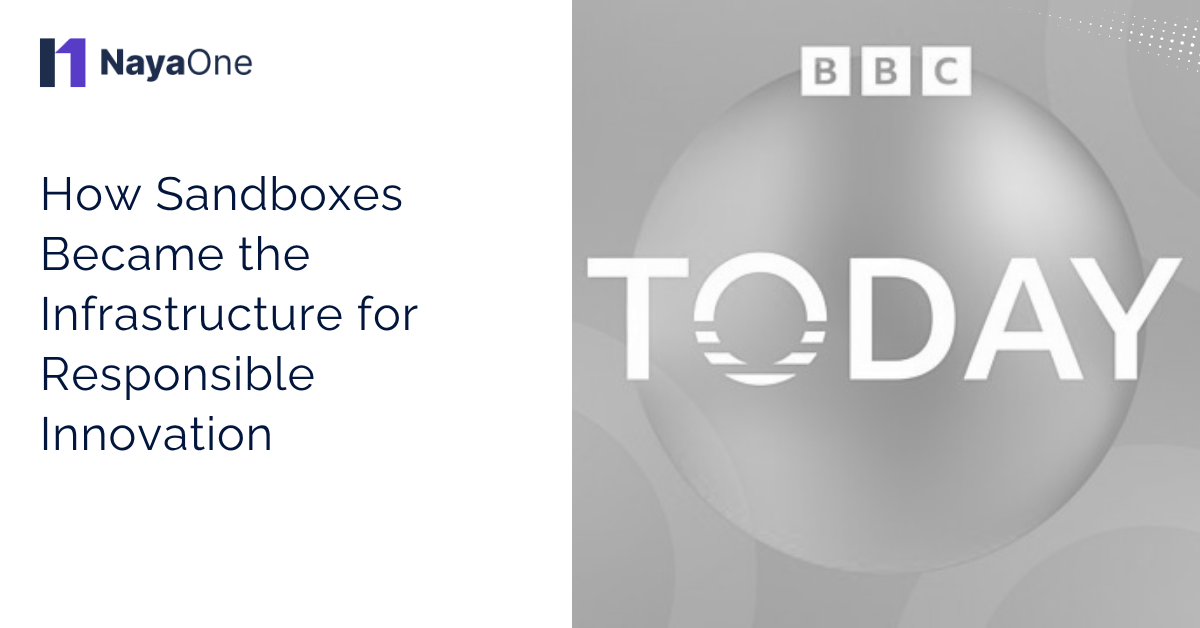Nick Cook is the inaugural director of innovation with the U.K.’s Financial Conduct Authority (FCA). His role is all about regulatory transformation—helping to enable change through innovation in the firms that they regulate and the markets that they oversee. Equally important to Cook is promoting change inside the FCA by harnessing technology and advanced analytics so that the organization can continue to regulate effectively in a dramatically and fast-shifting global financial services landscape.
I am a big supporter of the FCA’s innovative approach. It was a privilege for me to chair the FCA’s Industry Sandbox Consultation in 2016, where we used a new community innovation sprint format with over 160 industry participants and 25 individual report contributors in the U.K. and globally to deliver the report prior to a traditional regulatory consultation process.
The FCA is now recognized as a preeminent global leader in innovation with its own unique TechSprint event format and its pioneering Regulatory Sandbox, which has been emulated by regulators around the world. Cook is all too aware that in an era of unprecedented technological change, standing still is in effect going backwards, not just for industry, but also for regulators.
“We’ve been offering innovation services to the industry for five years now and we are satisfied with what we’ve achieved. We’ve helped new ideas get to market more quickly and supported startups going through our sandbox getting funding or being acquired. We’ve also made progress in encouraging collaboration across industry and across international boundaries and learned a lot about how new technologies in fintech and regtech are shaping financial markets.
“Frankly, we aren’t going to rest on our laurels. There’s still a lot more that we are hungry to go after, significantly more that we need to achieve and many more positive outcomes we’d like to see. We always ask ourselves, ‘What next? Now what? Where is innovation lacking? What more could and ought we do to stimulate and support progress in the interests of consumers and greater market competition?’
“For example, we know that parts of the market are looking for high-quality synthetic data and digital assets to test new technology solutions and that there isn’t a ready availability of those data assets now. Many regtech firms struggle to make the essential step from proof of concept to proof of value. Without this latter proof the path to production and deployment is a long, uncertain and an often aborted one.
“One of the things we are looking at is what that digital testing environment will need to look like, the role the regulator could play in supporting its creation, and whether it is something that can be scaled across jurisdictions,” says Cook.
The increasing interconnectedness of global economies has inevitably led to a need for greater collaboration across regulatory jurisdictions. Cook and the FCA are recognized as champions of global regulatory collaboration. In January 2019, the FCA led the launch of the Global Financial Innovation Network (GFIN), a network of regulators that enables industry firms to navigate between countries as they look to scale their new ideas.
“GFIN is really unique in both its geographical and organizational diversity. We have members from every continent except Antarctica, and an interesting blend of over 50 securities and conduct regulators, central banks and international organizations from around the globe. It’s not just a bunch of regulators sitting in a room discussing the finer points of legislation; we have organizations such as the World Bank and the Consultative Group to Assist the Poor acting as observers to make sure we are really seeing the bigger picture in terms of the transformative force for good that financial innovation and regulation can be. The potential of GFIN to enable digital transformation across the global regulatory system is really exciting,” asserts Cook.
Membership of GFIN is one example of the clear and growing enthusiasm on the part of U.S. regulators to embrace technology and collaborate internationally. The FCA recently won the Commodity Futures Trading Commission’s (CFTC) Chairman’s Award for Regulatory Excellence. It was announced that the CFTC, FDIC, OCC and SEC have all joined GFIN, which will really take the network to another level. This sends a powerful signal to industry that the U.S. regulators are onboard the GFIN network and are better preparing for global collaboration.
The increasing interconnectedness of global economies has inevitably led to a need for greater collaboration across regulatory jurisdictions. Cook and the FCA are recognized as champions of global regulatory collaboration. In January 2019, the FCA led the launch of the Global Financial Innovation Network (GFIN), a network of regulators that enables industry firms to navigate between countries as they look to scale their new ideas.
“We recently held an international AML & Financial Crime TechSprint looking at how certain technologies (known as Privacy Enhancing Technologies) could enable the sharing of information across financial institutions, law enforcement and regulators without violating data privacy legislation. We’ve run several TechSprints now but for the first time we had a satellite event in Washington, D.C., attended by our colleague regulators, U.S. firms and tech companies. We linked the two events via livestreaming. We had the chair of the FDIC addressing an audience in London live from Washington. We also had the Assistant Secretary for Terrorist Financing in the United States Department of the Treasury give the keynote in London, so it really was a joint U.K.-U.S. effort.
“Regulators need to get hands-on with new technologies and innovations and need to learn from those within and outside of regulated institutions with relevant and topical knowledge from the industry. TechSprints are just one way that we seek to do this on a large scale. These events are more productive and interesting when we can include regulators and other institutions from around the world. In the era of machine learning, we place significant value in human learning about the opportunities and threats from new technologies and new uses of data,” asserts Cook.
Operating in an increasingly digital world, where physical borders are more and more irrelevant as to how business is done, requires an acknowledgement on the part of regulators to change the way that they themselves operate, especially in financial services where jurisdictional currency, security and commodities laws and the treatment of customers can vary.
“It’s not viable to be an analog regulator in a digital world. There is a real understanding, appetite, enthusiasm and, indeed, need, for us to take a lot of the learnings that we’ve been happy to receive in the fintech and regtech space and apply them to ourselves. We are turning the mirror on ourselves and asking how we should operate as a digitally enabled, data-enabled organization. How do we start to transform ourselves toward a modern operating model, a heavier user of advanced technologies and advanced techniques? And how do we keep pace with, understand and engage with the external market whilst also leveraging these capabilities ourselves?” illustrates Cook.
These efforts have seen Cook oversee the first stages of a significant increase in the data science resource throughout the FCA, ultimately moving it from a cottage industry to a core capability, federated across the organization with the skills widespread and experience high rather than siloed in specific functions.
“Innovation is an ongoing process. You don’t just innovate and stop. And it can’t just exist in a silo. We’re in an interesting state where, although we have brought most of our innovation activities under a single division for the first time, we have simultaneously recognized the need for innovation to take hold and be fostered throughout the entire organization. We are starting to create data science units to sit within all the various functions of what we do.
“As an innovation director, I can look with some pride at the fact that there are intrapreneurs popping up all over this organization. Part of my role is to help nurture and support the growth of new ideas, new solutions and new approaches to achieving our important domestic and international responsibilities,” says Cook.
Bringing about this type of change is not without its challenges, chief among them bringing new skill sets and ways of thinking and of working into the organization. However, creating an environment that supports creative thinking and experimentation has been just as important to the process.
Cook adds: “We can identify the skills we may need for a particular program of work quite easily: data scientists, software engineers, etc. On the face of it there is a large pool of talent to recruit from. However, intangibles such as behaviors, attitudes, social and emotional intelligence are just as important as finding someone with the necessary technical capabilities. We need to be able to foster an environment where creative, motivated colleagues with diverse skills and ideas can work together to achieve shared goals.”
What does Cook think success will look like for an innovation capability within financial services and conduct regulators, which, frankly, are not noted for their pace of change?
Cook says: “For me, success will only in part lie in introducing new skills and structures, with a greater focus in being a catalyst for new attitudes and ideas. I want to see new cultural traits emerge; a willingness to learn through experimentation, to be curious about what is on and beyond the horizon, to engage with diverse thoughts and to bring them into our organizations; balancing ambitious moon shots with readily achievable quick wins.
“To do this will require top-level support, a collaborative approach within and beyond the FCA’s boundaries, an impatience to learn, and a great desire to accelerate progress. Part of my responsibility as an innovation director is to cultivate and broaden a culture of innovation throughout the entire FCA, not just within a single division. It’s a really, really exciting time for us and a very busy period ahead.”







